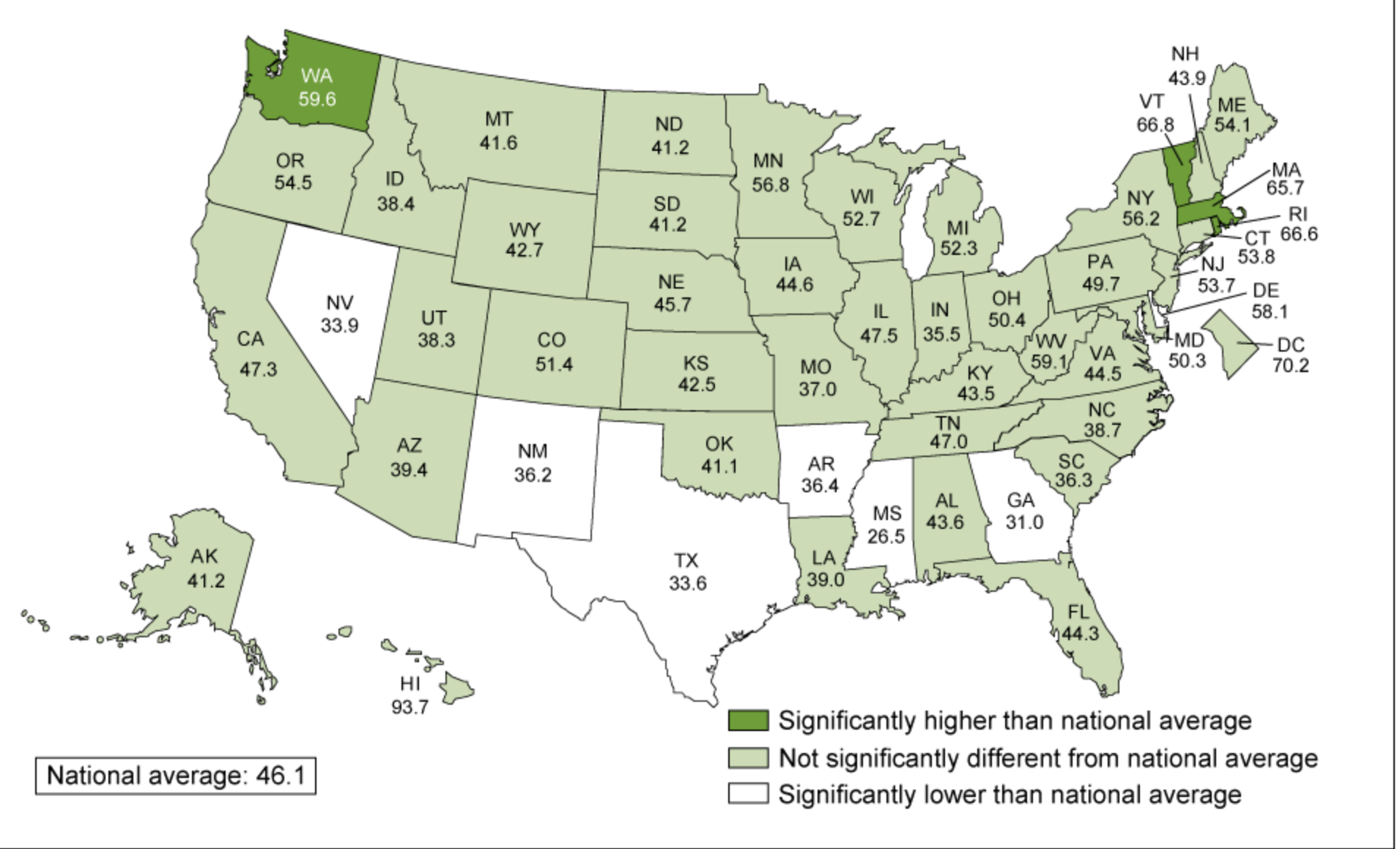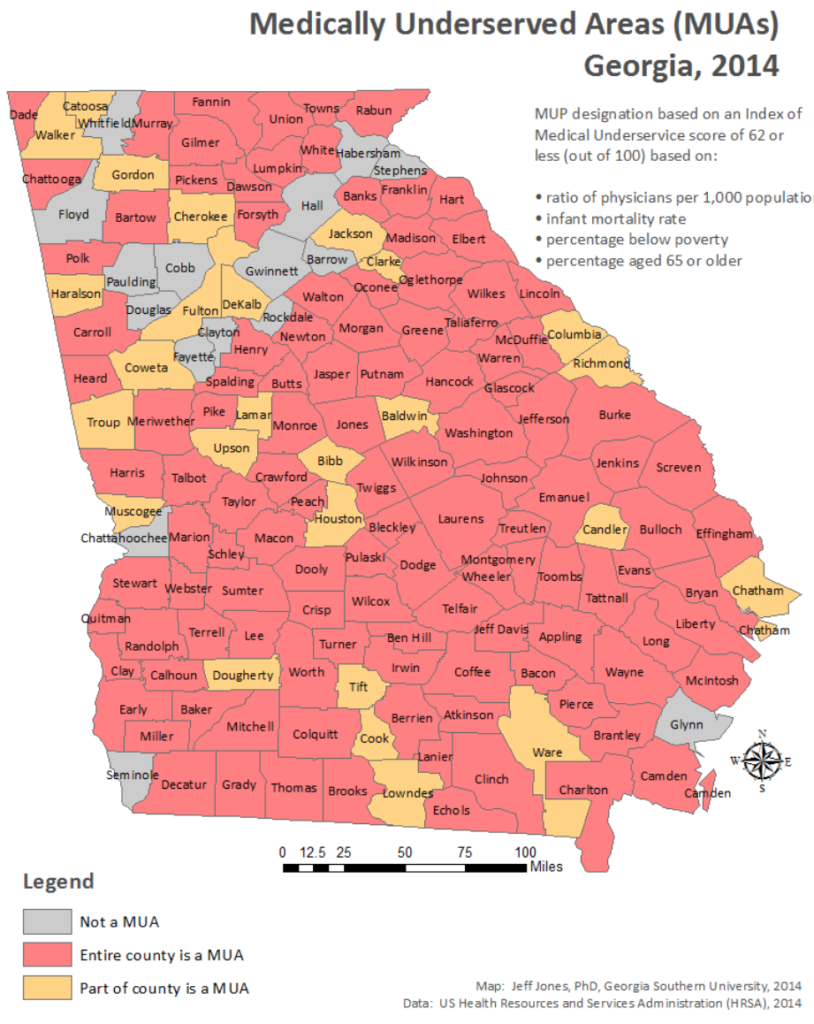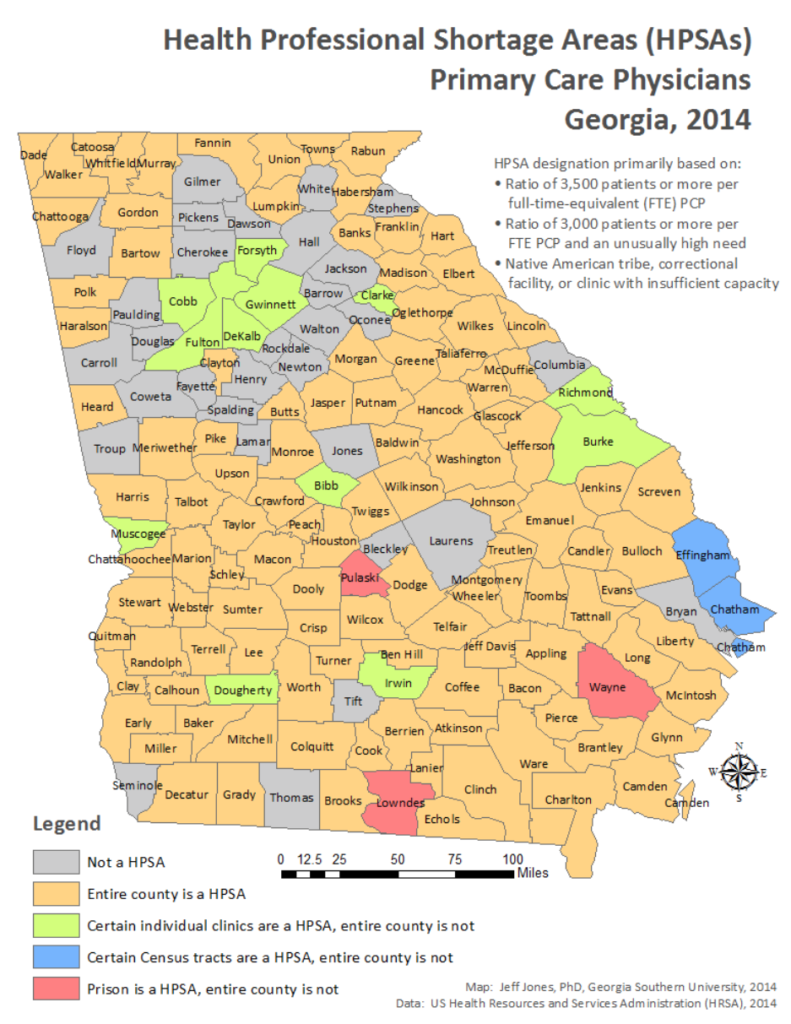THE STATE OF GEORGIA HEALTHCARE

BY MERRITT DANIELS – Throughout history, there has been a consistent idea of the “American Dream,” which views the United States of America as a place where each person is given equal opportunities to lead the best life possible, regardless of where they live or the circumstances they were born into. This concept that freedom includes the opportunity for prosperity and success should ultimately lead to health equity; meaning that everyone has a fair and just opportunity to be healthier. However, in today’s world that is not always the reality. Health disparities emerge when some groups of people have more or less access to opportunities and resources over their lifetime. In order for the United States to achieve such health equity, there needs to be a significant reduction and ultimately an elimination of these health disparities. Minimization of such disparities will require improving these marginalized groups’ access to healthcare professionals and facilities.
 These health disparities are not a foreign issue. In fact, the state of Georgia is currently being negatively impacted by such differences in health conditions and resources. Health is influenced by a range of social and economic factors, one of which is access to healthcare. The Georgia County Health Rankings of 2018 identifies the ratio of population to primary care physicians as 1,520 to 1, as well as 1,980:1 for dentists and 830:1 for providers of mental health within our state. In fact, our own Athens-Clarke county is directly impacted with a similar ratio of population to primary care physicians of 1,522 to 1, which is greater than the average for the over all state’s deficit. Therefore, the state’s and Athen’s population is not thoroughly represented with an adequate number of healthcare providers needed to reach the desired health equity associated with “the land of opportunity.” This shortage of physicians, dentists, mental health providers, and many other healthcare professionals in Georgia ultimately has lead to Georgians having limited accesses to the care they need, causing the health outcomes and health factors within our state to decline directly at the cost of the quality of life of the state’s residents
These health disparities are not a foreign issue. In fact, the state of Georgia is currently being negatively impacted by such differences in health conditions and resources. Health is influenced by a range of social and economic factors, one of which is access to healthcare. The Georgia County Health Rankings of 2018 identifies the ratio of population to primary care physicians as 1,520 to 1, as well as 1,980:1 for dentists and 830:1 for providers of mental health within our state. In fact, our own Athens-Clarke county is directly impacted with a similar ratio of population to primary care physicians of 1,522 to 1, which is greater than the average for the over all state’s deficit. Therefore, the state’s and Athen’s population is not thoroughly represented with an adequate number of healthcare providers needed to reach the desired health equity associated with “the land of opportunity.” This shortage of physicians, dentists, mental health providers, and many other healthcare professionals in Georgia ultimately has lead to Georgians having limited accesses to the care they need, causing the health outcomes and health factors within our state to decline directly at the cost of the quality of life of the state’s residents
Aside from the deficit of physicians, there is also a maldistribution of those physicians and other healthcare providers throughout Georgia. According to the Georgia Department of Community Health, 130 of the 159 counties in Georgia are classified as medically underserved areas. From those statistics, one can derive that 81.76% of the state has areas that have too few primary care providers, high infant mortality, or high poverty levels. From those underserved areas, 124 of those counties have been identified as geographical areas with primary care health professional shortages (HPSAs); one of which is Athens-Clarke County. This lack of providers in rural and underserved areas is causing not only a maldistribution of physicians, but ultimately a proportional relationship between where one lives and that person’s quality of life.
 University of Georgia (UGA) pre-health students have the opportunity to help alleviate this deficit and maldistribution of healthcare professionals within the state while completing their undergraduate degree, as well as, after their professional schooling. Through volunteer opportunities, like those are offered at Mercy Health Center, UGA students can contribute to increasing access of healthcare for Athens-Clarke County’s underserved populations. Dr. Jean Sumner, Dean of Mercer University School of Medicine, described it best when she said, “The opportunity to change health care in Georgia by becoming a physician or healthcare professional and serving in an area of need requires the best and brightest and those with courage, high intellect and a servant’s heart”. The future state of Georgia’s healthcare is dependent upon a passionate and capable next generation of physicians, dentists, nurses, therapists, and the other factions of healthcare professionals. Pre-health students can have a direct impact on improving the quality of life for Georgians statewide by contributing to the alteration of the current deficit and maldistribution of professionals in their designated fields.
University of Georgia (UGA) pre-health students have the opportunity to help alleviate this deficit and maldistribution of healthcare professionals within the state while completing their undergraduate degree, as well as, after their professional schooling. Through volunteer opportunities, like those are offered at Mercy Health Center, UGA students can contribute to increasing access of healthcare for Athens-Clarke County’s underserved populations. Dr. Jean Sumner, Dean of Mercer University School of Medicine, described it best when she said, “The opportunity to change health care in Georgia by becoming a physician or healthcare professional and serving in an area of need requires the best and brightest and those with courage, high intellect and a servant’s heart”. The future state of Georgia’s healthcare is dependent upon a passionate and capable next generation of physicians, dentists, nurses, therapists, and the other factions of healthcare professionals. Pre-health students can have a direct impact on improving the quality of life for Georgians statewide by contributing to the alteration of the current deficit and maldistribution of professionals in their designated fields.
